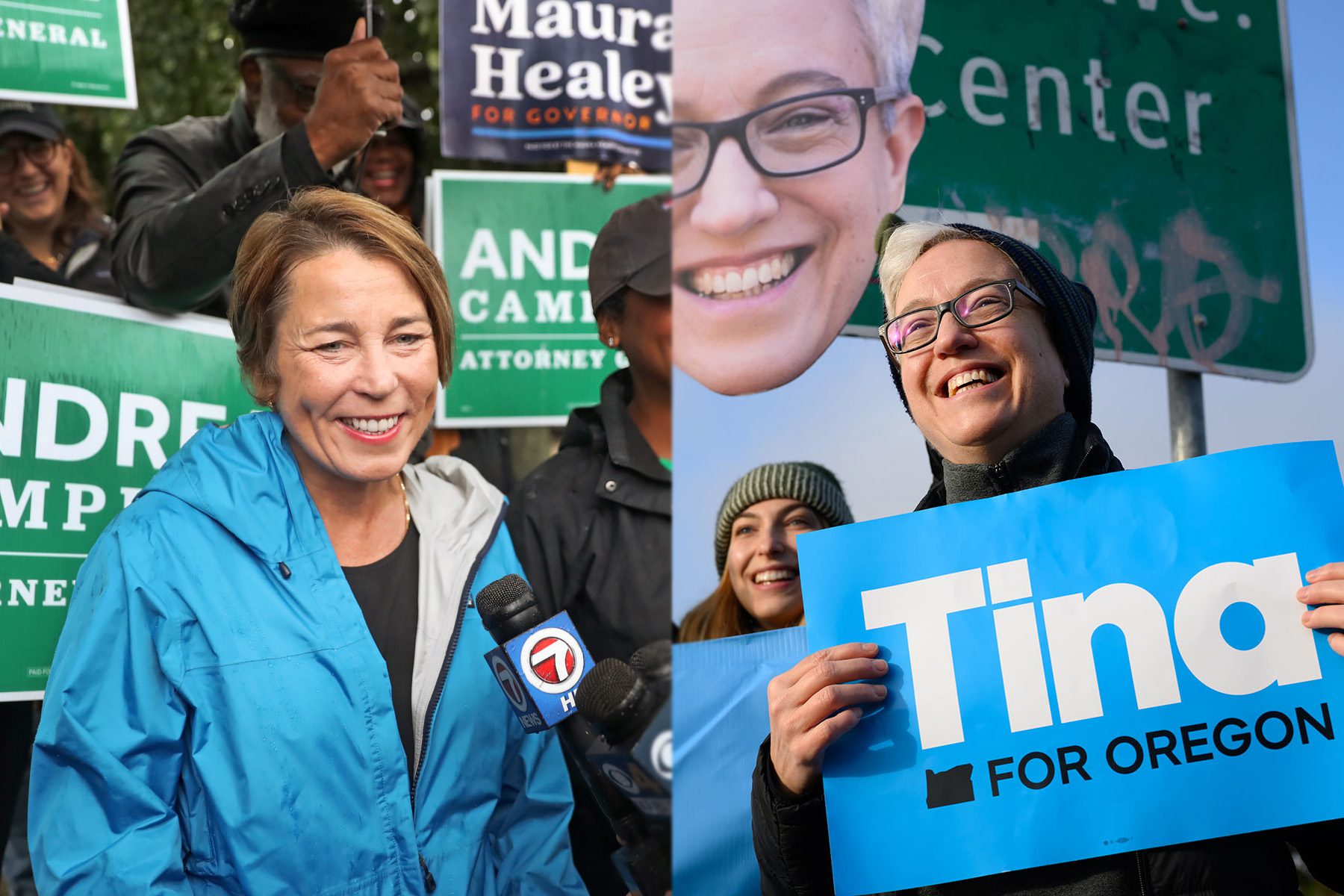We’re making sense of the midterms. Subscribe to our daily newsletter for election context and analysis.
Tina Kotek is projected to win the close Oregon governor’s race, according to Decision Desk HQ, joining Maura Healey in Massachusetts as the only other out lesbian governor ever elected in the country.
Healey and Kotek were among the record number of LGBTQ+ political candidates to win their primaries, according to the Victory Fund, which works to elect LGBTQ+ officials. This year also marked the first time that LGBTQ+ candidates ran in all 50 states.
Kotek’s and Healey’s political careers had already broken new ground. Healey, now the first woman to be elected governor of Massachusetts, was elected as the country’s first out gay state attorney general in 2014. In Oregon, Kotek served as the first out lesbian speaker of a statehouse after her 2013 election.
While Healey and Kotek both won in blue states, they faced different odds. Healey cruised to victory against her Trump-endorsed opponent and will turn the state’s leadership back over to Democrats, after Republican Gov. Charlie Baker declined to run for reelection. Kotek ran against a competitive Republican in a race close enough to motivate national Democrats, including President Joe Biden, to make public appearances and offer endorsements. The race also included a third-party candidate, also a woman with years of experience in the state’s legislative body, with surprising sway. With her win, Kotek will also continue the state’s 40-year streak of Democrat-only governors.
In Oregon, Kotek and her Republican opponent, Christine Drazan, ran on largely similar platforms — solving the state’s homelessness and housing issues, addressing economic and wage inequalities, wildfire suppression and improving graduation rates in state schools. But Kotek took pains to differentiate herself from Drazan on abortion access — most Oregon voters support the procedure — and accused Drazan, who was not endorsed by Trump, of being a “MAGA Republican” in hiding.
Throughout the race, Kotek’s campaign accused Drazan of planning to ban abortion in the state if elected, which Drazan, who was endorsed by Oregon Right to Life, had refuted, pointing to the procedure being declared a right under the state’s constitution in the 1980s.
However, during the first televised debate for the state’s Republican primary for governor in April — prior to her previous statements — Drazan made a different promise: “I stand for life. And will absolutely sign legislation that comes to my desk,” she said.
Kotek on Thursday declared victory in the race prior to the winner being projected by either the Associated Press or Decision Desk HQ, prompting Drazan to later call for all votes to be counted.
Kotek’s challenge, and ultimate victory, against Drazan also marks the end of the country’s first known competitive three-woman governor’s race. Experts previously told The 19th the historic race exemplifies what research has shown for years: Women in politics, and women voters, are not a monolith, including on vital issues like abortion access.
In Massachusetts, Healey ran on increasing tax credits for families with dependents, tying economic development to renewable energy and reaching net-zero emissions by 2030, and increased funding for infrastructure and housing. She occasionally referenced her time as a Harvard point guard as part of a “teamwork” message and leaned into her experiences as state attorney general. Her opponent, former state Rep. Geoff Diehl, ran on loosening COVID-19 vaccine requirements in schools, adopting “parental rights” rules for schools seen in other states and using a flat income tax to improve economic development.
Sean Meloy, vice president of political programs at the Victory Fund, said that candidates the organization works with across the country are consistently discouraged from seeking offices that have never been occupied by an LGBTQ+ person, often by critics who consider themselves LGBTQ+ allies. The idea is that since it hasn’t happened before, it can’t happen now.
“That’s why we need more LGBTQ people to step forward and to run and to win, so we can continue to break that falsehood,” he said.






